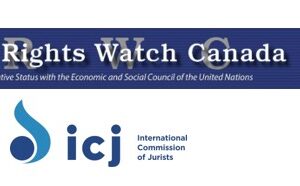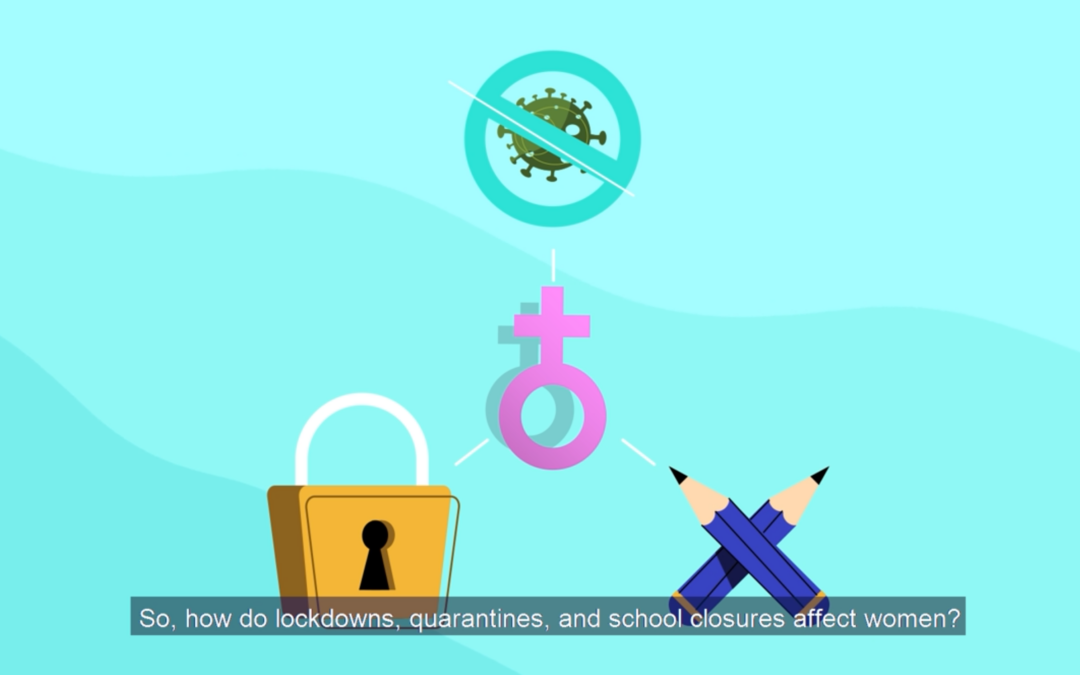
Jun 2, 2020 | Advocacy, News
At a webinar hosted on 26 May, the ICJ heard from women human rights defenders (WHRDs) from Asia, Africa, and the Middle East discussed the adverse impact on women of lockdowns and other measures imposed by governments around the world as a response to the COVID-19 pandemic.
Reports from around the world indicate a rise in the number of cases of domestic violence and new challenges faced by women victims in accessing justice.
“Support or assistance for women experiencing domestic violence was not classified as an essential service that may continue when the country went on lockdown,” said Nonhlanhla Dlamini who is the Director of Swaziland Action Group Against Abuse (SWAGAA) in Eswatini. Still, SWAGAA and other NGOs in Eswatini persisted in their work to lobby the government to classify their work as an essential service. The government later provided authorization to allow SWAGAA’s staff to move more freely in order to assist women experiencing gender-based violence during the lockdown.
Theresia Iswarini, Commissioner of Indonesia’s National Commission on Violence Against Women (KOMNAS Perempuan), observed that because of the limited movement during the lockdown, NGOs are having a hard time reaching women experiencing domestic violence who do not have phones or any devices to access the internet.
NGOs also face the challenge of placing these women in safehouses because they need to first present a certificate that they are COVID-free before they are accepted in the safehouse and such certificates are almost impossible to secure during the pandemic.
The WHRDs assisting women experiencing gender-based violence often also need psychosocial support, as “they also have to deal with the additional burdens of overseeing the homeschooling of their children and caring for family members who may have also fallen ill.”
In Sri Lanka, Mariam Dawood who is the Legal Adviser from Women in Need (WIN), noted that “women in Sri Lanka have always faced this problem and [of being] ignored when they report gender-based violence to police authorities.”
She also shared that while courts had started to operate on a limited basis in the country, women in maintenance cases risk being exposed to infection because they have to appear in court at least every month to get an order from the judge to compel their spouses to pay alimony or child support.
These orders were not automatically renewable and must be obtained by women every month from the court.
ICJ Commissioner and Member of the UN Committee on the Elimination of Discrimination against Women Nahla Haidar asked participants to think about how civil society could mobilize other stakeholders in pandemics to give an ethical call on how behaviors can change at home.
“Who is responsible? We have been trying to speak to faith leaders, especially women faith leaders [in the MENA region]. I am wondering how these channels can be used, as well as within traditional leadership channels in Africa,” Haidar said.
ICJ Senior Legal Adviser, Emerlynne Gil, noted that many of the issues raised showed that even during the pandemic, governments reproduced patriarchal approaches to public polices which effectively saw women as subordinate to men.
“This inequality underlines many of the actions taken by governments around the world to curb the pandemic,” said Emerlynne Gil. She added: “This means that it is all the more important for groups like the ICJ to continue its work eliminating gender stereotypes and discriminatory practices in the work of justice actors around the world.”
During the webinar, the ICJ launched an animation calling on States to adopt gender-sensitive responses to the COVID-19 pandemic. Watch the animation here:
The webinar was live streamed on ICJ Asia’s facebook. Watch the livestream here:
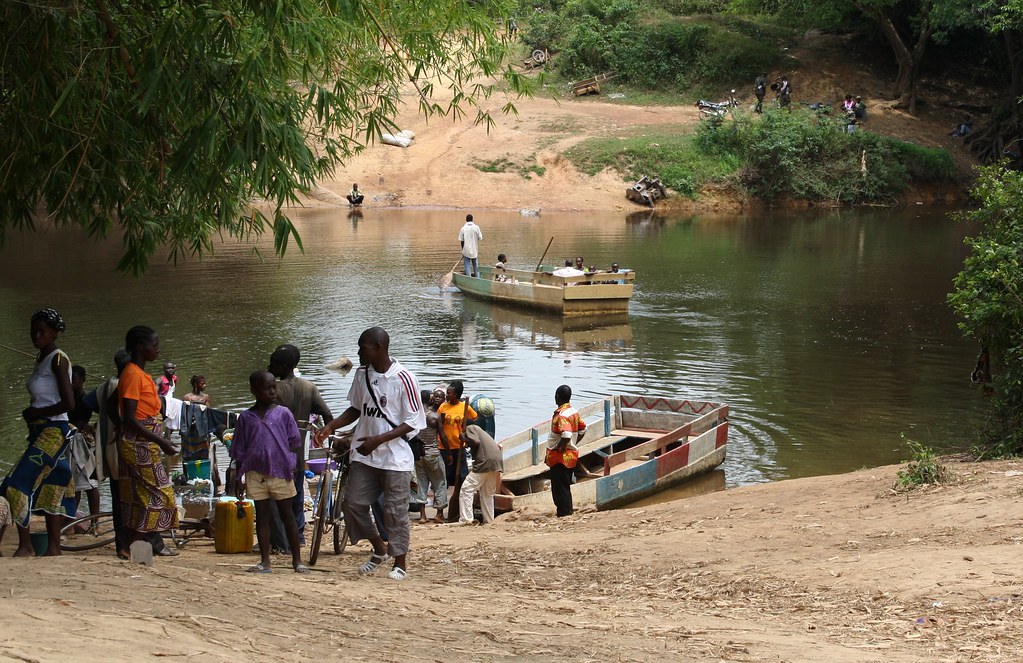
May 1, 2020 | Advocacy, News
The ICJ today condemned the recent decisions of the governments of the Republic of Benin and Côte d’Ivoire to withdraw their respective declarations that gave individuals and nongovernmental organizations the right to directly bring cases of human rights violations against those States, before the African Court on Human and Peoples Rights.
The ICJ called on the authorities of both States to reconsider and rescind these decisions.
Coming after a similar withdrawal by Tanzania in November 2019, these withdrawal decisions serve to deprive the inhabitants of these countries access to a judicial remedy at the regional level for human rights violations, and undermine the effective of the African regional human rights system.
The ICJ stressed that withdrawal decisions serve to undermine Aspiration 3 of the African Union’s AGENDA 2063, by which the AU aims at “[a]n Africa of good governance, democracy, respect for human rights, justice and the rule of law.”
Both States have offered vague and unsubstantiated rationales for their decisions, but their actions follow their dissatisfaction with the outcomes of particular cases against them. Responses of this kind are effectively an attack on the independence of the Court and can serve to undermine the integrity of the Court itself.
The ICJ recalls that in February 2020, the Executive Council of the African Union called on African States to accede to the Protocol Establishing the African Court and to make the declaration required under article 34(6) of the Protocol. These decisions of the governments of Benin and Côte d’Ivoire to withdraw their article 34(6) declarations fly in the face of this call by the Executive Council of the African Union and greatly threaten the progress that has been made towards protection of human rights in Africa.
Background
Article 34(6) of the Protocol to the African Charter on Human and Peoples’ Rights establishing the African Court on Human and Peoples’ Rights requires that State Parties to the Protocol make a separate declaration in order to allow direct access to individuals and non-governmental organizations to bring cases against them before the African Human Rights Court. Benin which deposited its declaration on 8 February 2016 announced its withdrawal of the declaration on 23 April 2020. Benin claimed that its decision is based ‘dysfunctions and slip-ups’ it has increasingly observed in the work of the African Human Rights Court, allegedly resulting in the Court’s increasing departure from its mandate and core area of competence. Benin cited the earlier withdrawals of Rwanda and Tanzania as further justification for its decision.
Côte d’Ivoire, which deposited its declaration on 23 July 2013 and announced its withdrawal on 29 April 2020, says that its decision was based on what it considers to be ‘the serious and intolerable actions that the African Court has allowed itself’ and which ‘not only undermines the sovereignty of the state of Côte d’Ivoire … but are also likely to cause serious disruption to the internal legal order of states’.
Contact:
Arnold Tsunga, ICJ Africa Director, C: +27716405926, or +254 746 608 859 E: arnold.tsunga@icj.org
Solomon Ebobrah, Senior Legal Advisor, ICJ Africa, C: +234 8034927549; E: Solomon.ebobrah@icj.org
Full text, in PDF: Ivory-Coast-Statement-Advocacy-ENG-2020
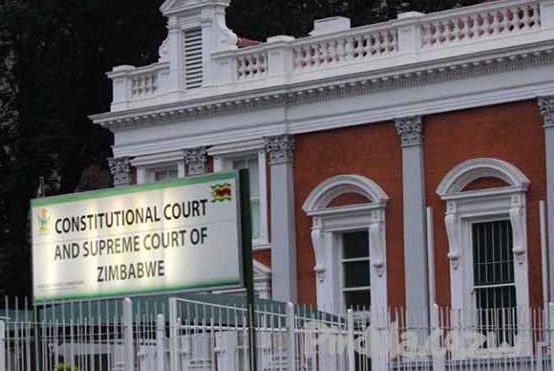
Apr 2, 2020 | News
The ICJ welcomes the decision by the Constitutional Court of Zimbabwe to invalidate the enactment of Constitutional Amendment Bill (No. 1) of 2017 in Gonese and Anor v Parliament of Zimbabwe and 4 Ors. The judgment restores important Constitutional guarantees for the independence of the judiciary in Zimbabwe.
Zimbabwe adopted a new Constitution in 2013 and one of the progressive elements of this Constitution was its provisions regulating the appointment of judicial leaders such as the Chief Justice, Deputy Chief Justice and Judge President of the High Court. These judicial leaders perform important administrative functions with a huge impact on access to justice for the public.
For example, the Chief Justice is the head of the Judicial Service Commission (JSC) and therefore, presides over processes to select and recommend candidates for judicial appointment.
The Judge President is responsible for case allocation in the High Court and therefore, selects judges to sit on cases. It is important that the procedures for appointing these judicial leaders be transparent and independent of executive control in order to maintain the independence and impartiality of judges as well as promote public confidence in the judiciary.
The 2013 Constitution ensured this by prescribing procedures which accorded the executive a constrained role in the selection and appointment of these judicial leaders.
For example, the process of selecting these office bearers was to be led by an independent Judicial Service Commission (JSC) which would publicly advertise the vacancies, shortlist candidates, conduct interviews that are open to the public and recommend candidates for appointment by the President. The President was required to appoint only from the shortlist submitted by the JSC.
In 2017, the then-President of Zimbabwe Robert Mugabe signed into law a constitutional amendment bill which sought to change these provisions and give the President the authority to select and appoint these judicial leaders without conducting public interviews and without being constrained or restricted to the shortlist provided by the JSC.
The enactment of this constitutional amendment bill was challenged in the Constitutional Court on grounds that the amendment had been adopted and enacted into law without following due process.
In its judgment, the Constitutional Court concluded that, “It is declared that the passing of Constitutional Amendment Bill (No. 1) of 2017 by the Senate on 01 August 2017 was inconsistent with the provisions of s 328(5) of the Constitution, to the extent that the affirmative votes did not reach the minimum threshold of two-thirds of the membership of the House. Constitutional Amendment Bill (No. 1) of 2017 is declared invalid to the extent of the inconsistency. The declaration of invalidity shall have effect from the date of this order but is suspended for a period of one hundred and eighty days, subject to the provisions of paragraph 1(b).”
The Court directed the Senate to conduct a vote in accordance with the procedure for amending the Constitution prescribed by s 328(5) of the Constitution within one hundred and eighty days of the order given. Failure to do so will render the declaration of invalidity of Constitutional Amendment Bill (No. 1) of 2017 final, said the Court.
Commenting on this judgment, ICJ Africa Director Arnold Tsunga said: “This is a positive judgment which underscores the vital principle of legality, particularly that changes to the Constitution must be processed and enacted in strict accordance with the laid out procedures. Respect for the Constitution, and ensuring the independence of the judiciary, are fundamental elements of the rule of law; both are advanced by this judgment.”
The decision by the Constitutional Court comes at a time when the Parliament of Zimbabwe has gazetted further proposed changes to the Constitution, which amongst other things seek to give the executive a stronger role in the selection and appointment of judges to the Supreme Court and Constitutional Court.
These proposed changes would undermine judicial independence and undercut public confidence in the independence and impartiality of the judiciary. Further, these proposed changes are contrary to international and African standards. For instance, the United Nations Basic Principles on the Independence of the Judiciary enjoin member states to ensure that “Any method of judicial selection shall safeguard against judicial appointments for improper motives.”
The African Commission on Human and Peoples’ Rights’ Principles and Guidelines on the Right to a Fair Trial and Legal Assistance in Africa further provide that, “The process for appointments to judicial bodies shall be transparent and accountable and the establishment of an independent body for this purpose is encouraged.” The ICJ therefore, calls upon the government of Zimbabwe to reconsider its decision to proceed with these proposed changes to the Constitution.
Contact
Arnold Tsunga, t: +26377728 3248; e: arnold.tsunga@icj.org
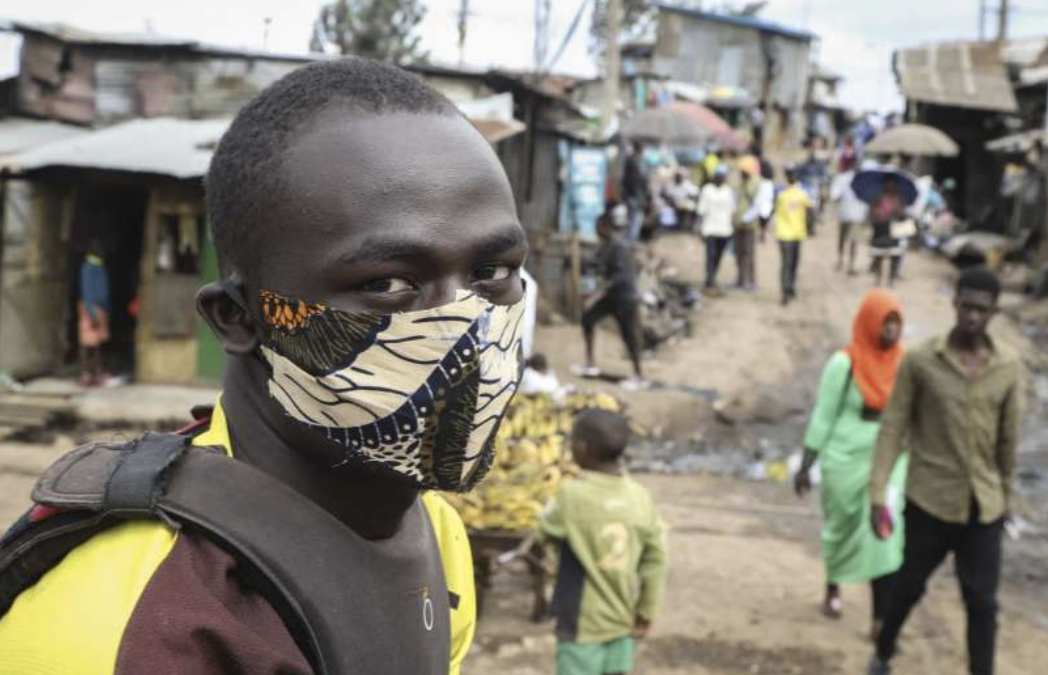
Mar 27, 2020 | News
The ICJ today called on the responsible authorities to adopt urgent measures to ensure the equal protection of the right to health and life of the country’s inhabitants in the wake of the growing COVID-19 pandemic.
The call came amidst indications that official response has been inadequate and poorly conceived.
Although Zimbabwe has only three officially confirmed COVID-19 cases and one casualty so far, the true figures are likely to be higher.
Media reports indicate that the health care facilities designated to deal with COVID-19 cases are severely under equipped. Doctors and nurses have announced that they are withdrawing their services because government is failing to provide them with protective clothing such as masks and gloves.
“The ICJ is deeply concerned by the poor state of preparedness of the Zimbabwean Government to handle COVID-19 cases,” said Arnold Tsunga, ICJ African Programme Director.
“The COVID-19 pandemic has brought to the fore cracks in health systems and presented governments everywhere with unprecedented challenges. The government’s response should however remain steeped in obligations espoused in the Constitution and international legal instruments to which Zimbabwe is a party,” he added.
The ICJ called on the Government of Zimbabwe to take urgent measures, include those aimed at ensuring that its healthcare system can provide for adequate screening, testing and care for COVID-19 patients.
The ICJ said that the Government must also investigate reports of the mishandling of patients, increase transparency and regular communication with the public and dedicate more resources to dealing with the COVID-19 pandemic.
Background
Zimbabwe announced its first confirmed case of COVID-19 on 21 March. The first casualty was recorded on 23 March. On 25 March 2020, the Ministry of Health and Child Welfare reported that a total of 100 people had been tested for COVID-19. Of these, 96 were negative, three tested positive and one test was found to be inconclusive.
Zimbabwe is a party to the International Covenant on Economic, Social and Cultural Rights (ICESCR), which imposes a duty to protect the right of everyone to enjoyment of the highest attainable standard of physical and mental health. Zimbabwe is also party to the International Covenant on Civil and Political Rights and the African Charter on Human and Peoples Rights, both of which guarantee the right to life.
Pursuant to Section 76 (1) of the Constitution of Zimbabwe, the government must provide access to basic health care services to all citizens and residents. Further, section 76 (3) of the Constitution enjoins government to ensure that no person is denied emergency medical treatment in any health care facility. In addition, government has an obligation, under section 51 of the Constitution, to protect human dignity.
The Committee on Economic, Social and Cultural Rights has set out the minimum standards which must be fulfilled at all times for States that are party to the IECSCR;
- Quality: Heath care facilities should be equipped with necessary equipment and medicine including safe and adequate water, sanitation and skilled medical professionals.
- Availability: Health care facilities with adequately trained and fairly-paid medical personnel and essential medicines should be made available to all.
- Accessibility: Health care facilities should be accessible to all without discriminating. Accessibility also includes physical accessibility, economic accessibility and access to information.
- Acceptability: Health care services should be provided in a manner that complies with medical ethics.
Measures undertaken by the Government of Zimbabwe, in response to the COVID-19 pandemic must adhere to these minimum standards. However, the ICJ has noted the following allegations and reports from credible media sources;
- Gross under-testing of people despite showing most of the COVID-19 symptoms;
- Absence of protective gear for health care workers;
- Lack of training of health care workers on the proper handling of COVID-19 related patients;
- Mishandling/ill treatment of patients at COVID-19 health care centres;
- Absence of equipment such as ventilators and respirators;
- Absence of running water at designated COVID-19 health care centres;
- Insufficient staffing at the designated COVID-19 care and isolation centres, as a result of some doctors and nurses having gone on strike;
- Government is establishing fully equipped COVID-19 health care facilities but exclusively for the political elites and their associates.
Contact:
Arnold Tsunga, Director of the ICJ Africa Regional Programme, t: +263 77 728 3248, e: arnold.tsunga(a)icj.org
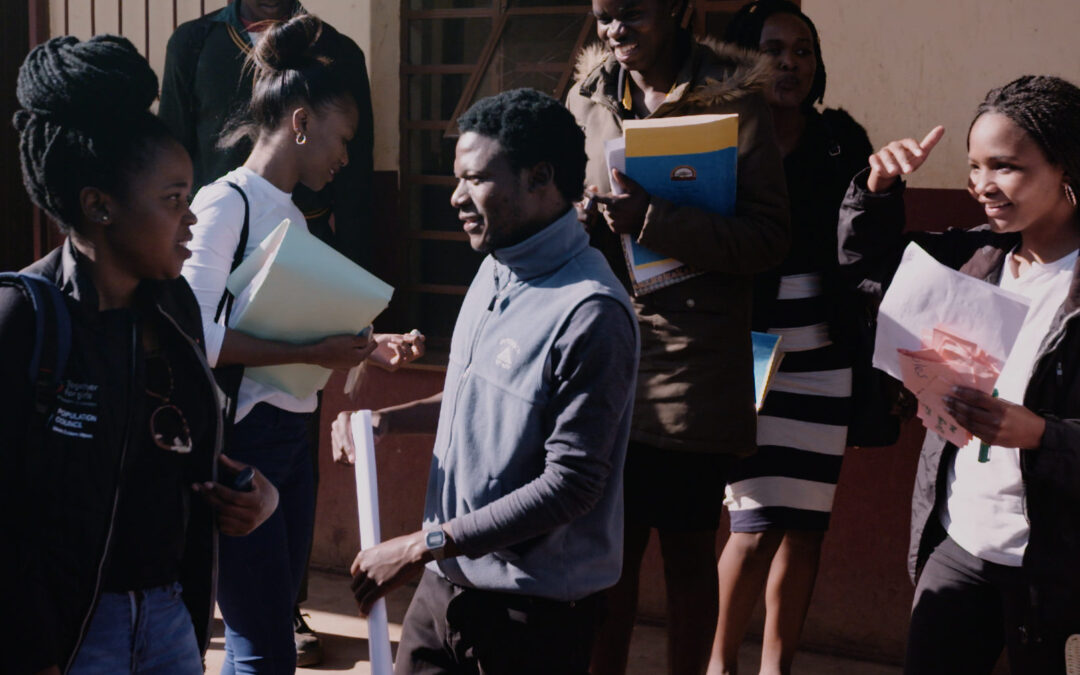
Mar 15, 2020
The briefing paper Access to Challenges faced by Victims and Survivors of Sexual and Gender-Based Violence in Eswatini comes in the wake of the 2018 adoption of the country’s Sexual Offences and Domestic Violence (SODV) Act.
This law followed years of advocacy from civil society and women’s human rights organizations in the Kingdom. It is a landmark piece of legislation aimed at ending sexual and gender-based violence (SGBV) in the country.
However, the effective investigation and prosecution of SGBV crimes presents complex challenges to the justice system in Eswatini.
It will take more than the passage of a new law to protect women in Eswatini and strengthen access to justice for women and girls in the country.
Gender stereotypes and gender bias, sometimes based on traditional, religious and cultural norms continue to permeate the justice system, preventing women and girls from effectively accessing justice for SGBV.
Download
Eswatini-SGBV Report-Advocacy-Analysis brief-2020-ENG (full paper, in PDF)









